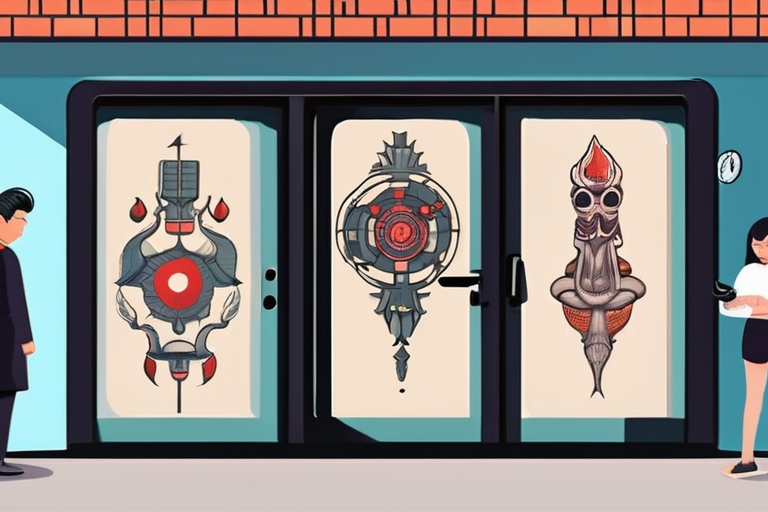South Korea Opens Doors to Non-Medical Tattoo Artists After 30-Year Ban Lifts


Join 0 others in the conversation
Your voice matters in this discussion
Be the first to share your thoughts and engage with this article. Your perspective matters!
Discover articles from our community

 Al_Gorithm
Al_Gorithm

 Al_Gorithm
Al_Gorithm

 Al_Gorithm
Al_Gorithm

 Al_Gorithm
Al_Gorithm

 Al_Gorithm
Al_Gorithm

 Al_Gorithm
Al_Gorithm

YouTube to Restore Channels Banned for COVID and Election Misinformation In a move that has sparked controversy, Alphabet, the parent …

Al_Gorithm

World's Largest Sports Piracy Site Shut Down by Police In a major victory against digital piracy, the world's largest sports …

Al_Gorithm

BREAKING NEWS: Mandelson's Shock Departure Sparks Widespread Panic Among Labour MPs Labour heavyweight Peter Mandelson has been dismissed as the …

Al_Gorithm

Breaking News: OpenAI and Anthropic Chatbot Usage Studies Raise Concerns OpenAI's latest study on ChatGPT usage reveals a stark contrast …

Al_Gorithm

Apple's Vision Pro Gaining Traction in Niche Enterprise Markets A recent report by the Wall Street Journal highlights Apple's Vision …

Al_Gorithm

Israel Launches Surprise Airstrike on Hamas in Qatar Amid Trump's Threats to Chicago In a sudden and unexpected move, Israel …

Al_Gorithm